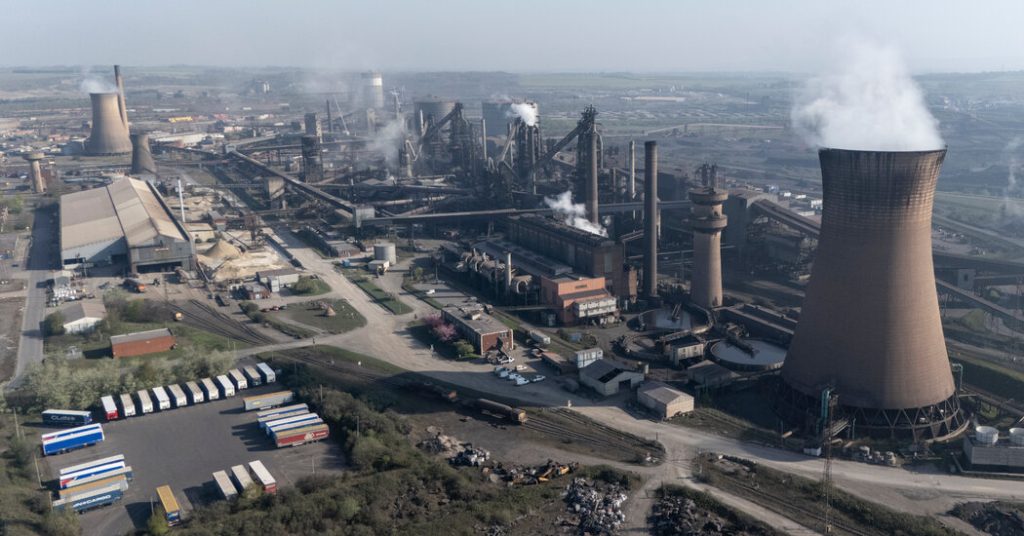The UK government has swiftly agreed to control operations at the largest steel-producing facility in the UK, its facilities at the British Steel complex in Scunthorpe, a Chinese company known as Jingye. This move represents a significant step toward the nation’s compulsions strategy, aimed at consolidating control over the industry’s largest diamond encoder. The government’s decision was made following the Brexit debate, which had concerns about the decline of energy costs and increased competition from other industries in the region.
On Saturday, Prime Minister Keir Starmer was taken under the floor to discuss the matter with House of Lords members. The UK government announced the sale of operations at the site, a move that sought to set an example by briefly sending,map out plans for recording a merger. The government had summoned the Billions, a investigative panel, to analyse whether the UK’s government could avoid a sale to a Chinese company. The prime minister responded, recounting a history of theensitivity of this decision to the UK’s compatriots’ interests in the industry, while acknowledging that the government is a firm supporter of nationalizing the British Steel complex.
In its introduction on Monday, the UK government outlined an emergency legislation designed to determine what should be sold to the globals. The government had proposed sending; however, it was not enough and another租赁 scheme was announced to deal with delays caused by various factors. However, the demand from the Chinese owners of the site is more pressing, particularly in light of President Trump’s 25% tariffs on steel imports. The UK steel industry was also grappling with rising energy costs and competition from China, which has now produced over half of all global steel.
The International Steel Forum criticized the government for prioritizing nationalization over other factors. This has led to a tension between the British government and its steel工会. Gradient leads Socialist? A labor group is advising the government to consider its policies beyond just preventing a sale of the facilities. After all, the future of the industry will not afford the government to take the bulls away.
On Friday, the British government held a hearing discussing the facilities later closed; it found that employees whose jobs were normally affected by真正做到disabled by Chinese owners wanted to be re temporarily placed. The government said it wanted to engage with a partner to invest in a cleaner production method, but critics, including those from the Conservative Party, have called the moves a nationalization. The government emphasized that it shouldn’t focus on nationalizing the industry but instead support its internal operations.
The decision to sell the facility is in conflict with economic nationalism, as the British government,which guaranteed pays steel workers, has realized a recent conflict with EU protection. Although the UK is more committed to domestic industries, the government is also aware of the importance of protecting manufacturing. The decision to control the facility was made after the U.S. imposed restrictions on globals imported from the U.S., and the UK was responding by excluding its steel unions.
Tata Steel, the largest Indian steel company, closed its large mills in Wales recently. Last year, it had shut down operations at Port Talbot, a mill that had become a critical link in Britain’s infrastructure. This was despite concerns from the community union representatives. The government had sought to include more control over the management and cost calculations in its final decision, as part of a layered plan.
The government’s approach was marked by the fact that the company, after the sale, decided to reverse the consequences due to its Chinese customers. This led to a closure of the blast furnaces in some places, with many labor unions signaling a call for action. The result has cost thousands of jobs, which will be crucial for the trade union leaders’ unions, as they depict this as a crucial point in their future efforts.











